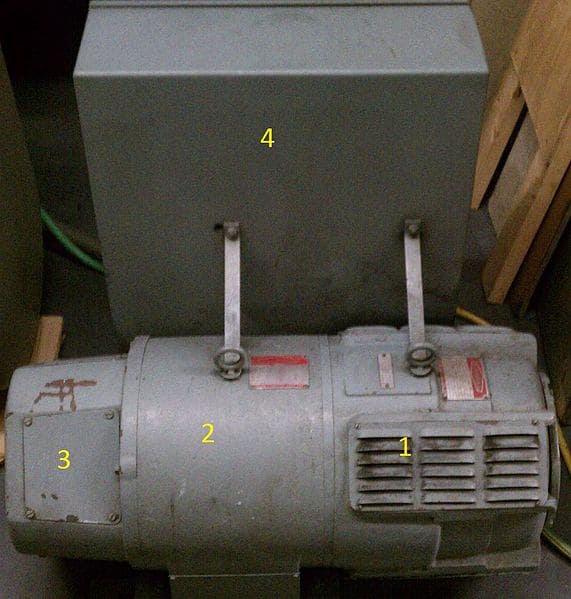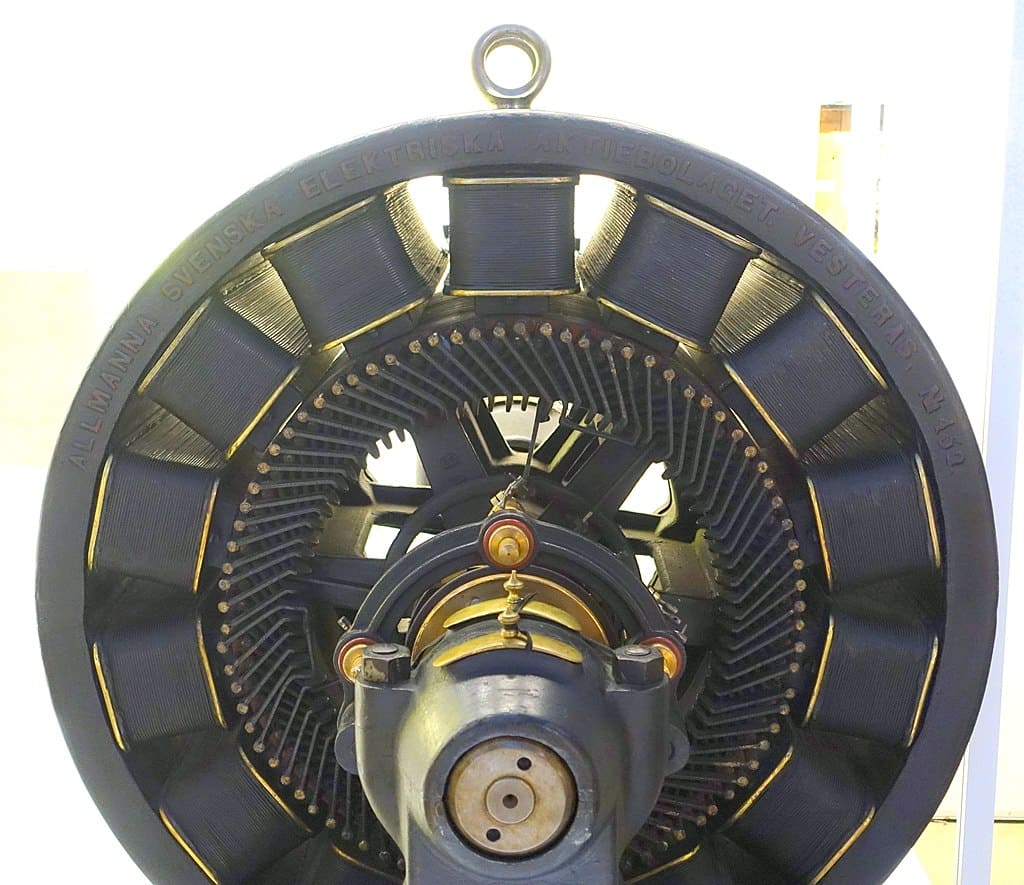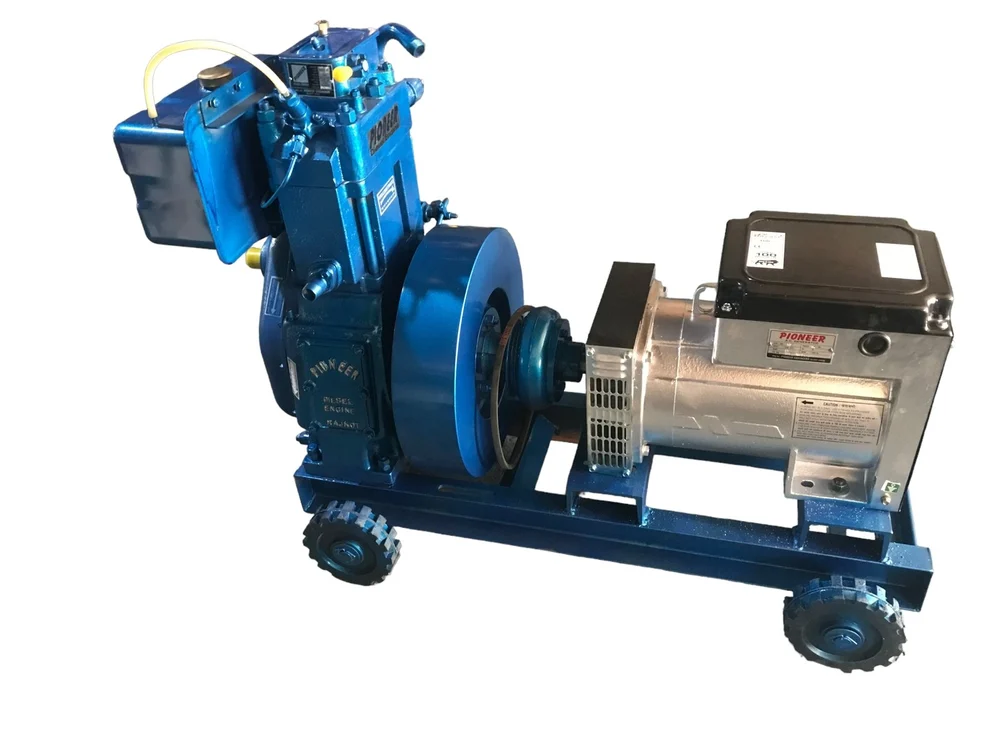In our modern world, electricity is the lifeblood of virtually every aspect of our lives. From powering our homes to sustaining industries and businesses, a reliable source of electricity is non-negotiable. When it comes to ensuring uninterrupted power supply, 3 phase generators stand as indispensable tools. However, understanding their costs and the myriad factors influencing their prices is essential. In this expansive and informative guide, we’ll delve deep into the realm of 3 phase generator prices, offering comprehensive insights to empower you with the knowledge to make well-informed decisions.
The Significance of 3 Phase Generators
In an era where our reliance on electricity is paramount, 3 phase generators emerge as pivotal guardians of power continuity. These robust machines provide the backbone for countless industries, ensuring the smooth operation of essential equipment and systems. From construction sites to hospitals, data centers to manufacturing plants, 3 phase generators serve as lifelines during power outages, enabling businesses to stay afloat and critical functions to proceed uninterrupted.
The Complexity of Pricing
The world of 3 phase generator prices is multifaceted, influenced by an array of factors that go beyond mere kilowatt capacity. To navigate this complexity and make an informed purchase, it’s crucial to comprehend the intricacies of these generators and the variables that impact their costs. From the type of fuel they consume to the reputation of the manufacturer and the inclusion of advanced features, every aspect plays a role in determining the final price tag.
Understanding 3 Phase Generators

Unpacking the 3 Phase Generator Concept
Before diving into the pricing details, let’s unravel the concept of 3 phase generators. At its core, a 3 phase generator is an electrical device designed to produce three alternating currents, providing a consistent and reliable power supply. Unlike single-phase generators, which generate a single wave of electricity, 3 phase generators produce three separate waves, each evenly spaced, ensuring a balanced and efficient distribution of power.
The Inner Workings of 3 Phase Generators
To appreciate the value of these generators, it’s essential to grasp how they function. A 3 phase generator operates on the principle of electromagnetic induction. Within the generator’s core, a rotor spins within a stator, creating a rotating magnetic field. This field induces voltage in the stator windings, ultimately producing the three-phase alternating current.
Common Applications
The versatility of 3 phase generators makes them indispensable across various sectors. In industrial settings, they power heavy machinery, manufacturing processes, and entire production lines. In the construction industry, they provide electricity at remote job sites, ensuring tools and equipment function optimally. Additionally, they play a crucial role in safeguarding critical operations, such as hospitals and data centers, during power interruptions.
Factors Influencing 3 Phase Generator Prices
Generator Capacity: A Crucial Determinant
The capacity of a 3 phase generator, measured in kilowatts (kW), stands as a paramount factor in determining its price. Higher capacity generators, capable of delivering more power, tend to come with higher price tags. Assessing your power needs accurately is vital to avoid overpaying for excess capacity.
Fuel Type: Powering Your Generator
The type of fuel a generator uses significantly affects its price and long-term operating costs. Diesel generators, for example, are often more expensive upfront compared to gasoline-powered counterparts. However, they are known for their durability and fuel efficiency, making them cost-effective over time.
Brand and Manufacturer: The Value of Reputation
The brand and manufacturer of a 3 phase generator can have a substantial impact on its price. Well-established brands with a reputation for quality and reliability often command premium prices. While this might mean a higher initial investment, it can pay off in the form of longevity and reduced maintenance costs.
Additional Features: Enhancing Performance
Many 3 phase generators come equipped with advanced features that enhance their performance and convenience. These features can include automatic transfer switches, remote monitoring capabilities, noise reduction technology, and more. While these additions can make the generator more expensive, they often prove invaluable in specific applications.
Types of 3 Phase Generators

Portable Generators: Versatile and Handy
Portable 3 phase generators offer versatility and mobility, making them suitable for a wide range of applications. They are commonly used in construction, outdoor events, and as backup power sources for small businesses and homes. These generators are typically
more affordable than their larger counterparts, making them an attractive option for those with fluctuating power needs.
Standby Generators: Reliability in Blackouts
Standby generators are designed to provide backup power during outages automatically. They are typically permanently installed and connected to the electrical system of a home or business. When a power outage occurs, standby generators kick in seamlessly, ensuring uninterrupted power supply. While they come at a higher cost, their reliability during critical situations makes them a sound investment.
Industrial Generators: Powerhouses of Production
Industrial-grade 3 phase generators are engineered to withstand heavy usage in demanding environments. They are commonly found in factories, manufacturing plants, construction sites, and large-scale operations where a continuous and reliable power supply is non-negotiable. While these generators come with a substantial price tag, their ability to keep production lines running smoothly is invaluable.
3 Phase Generator Price
3 phase generator prices in India can range from ₹50,000 for entry-level models to ₹3,50,000 for mid-range generators with more features. High-end 3 phase generators with advanced capabilities can cost ₹4,00,000 or more. Keep in mind that installation and maintenance costs are additional considerations.
3 Phase Generator Price with Different Types
Here are the price ranges for 3 phase generators in India along with several variations:
- Entry-Level Generators (₹50,000 – ₹1,50,000): These generators are affordable and suitable for small businesses or occasional use. They typically have basic features and lower capacity.
- Mid-Range Generators (₹1,50,000 – ₹3,50,000): Mid-range 3 phase generators strike a balance between capacity and cost. They are versatile and suitable for homeowners, small to medium-sized businesses, and construction projects.
- High-End Generators (₹3,50,000 and above): High-end 3 phase generators offer top-tier features and the highest capacity. They cater to large industrial facilities, critical operations, and situations where uninterrupted power is paramount.
3 Phase Generator Price with Capacity and Types
Prices of 3 phase generators in Indian Rupees (INR) with variations based on capacity and type:
| Generator Type | Capacity (kW) | Price Range (INR) |
|---|---|---|
| Entry-Level Portable | 5 – 15 | ₹ 25,000 – ₹ 75,000 |
| Mid-Range Portable | 15 – 50 | ₹ 75,000 – ₹ 2,00,000 |
| High-End Portable | 50+ | ₹ 2,00,000 – ₹ 10,00,000+ |
| Standby (Residential) | 10 – 30 | ₹ 1,00,000 – ₹ 5,00,000 |
| Standby (Commercial) | 30 – 150 | ₹ 5,00,000 – ₹ 20,00,000 |
| Industrial | 150+ | ₹ 20,00,000 – ₹ 1,00,00,000+ |
Price Ranges for 3 Phase Generators
Entry-Level Generators: Affordable Solutions
Entry-level 3 phase generators are characterized by their basic features and lower capacity. These generators are ideal for small businesses, occasional use, and situations where budget constraints are a primary concern. While they may lack advanced features, they offer a cost-effective solution for those with modest power requirements.
Mid-Range Generators: Balance of Cost and Capacity
Mid-range 3 phase generators strike a balance between capacity and cost. They are versatile and suitable for homeowners, small to medium-sized businesses, and construction projects. These generators offer a more extensive range of features compared to entry-level models, making them suitable for a broader range of applications.
High-End Generators: Premium Performance
High-end 3 phase generators are the pinnacle of performance and capability. They offer the highest capacity, advanced features, and robust construction. These generators cater to large industrial facilities, critical operations, and situations where uninterrupted power is paramount. While they come with a premium price, their ability to deliver top-tier performance justifies the investment.
How to Choose the Right 3 Phase Generator
Evaluating Your Power Needs
The first step in choosing the right 3 phase generator is assessing your power requirements accurately. Understanding how much power your equipment and systems demand is essential to avoid purchasing an over- or under-sized generator. Conduct a thorough inventory of your electrical load to determine the generator capacity you need.
Weighing Fuel Efficiency
Consider the long-term operating costs of your generator by evaluating its fuel efficiency. Diesel generators, while more expensive upfront, tend to be more fuel-efficient and cost-effective in the long run. Analyze the cost of fuel and the expected runtime of your generator to estimate ongoing expenses accurately.
The Importance of Brand Reputation
Investing in a reputable brand is a key factor in ensuring the reliability and longevity of your 3 phase generator. Conduct research and read customer reviews to gauge the reputation of various manufacturers. While it may involve a higher initial cost, choosing a trusted brand can pay dividends in terms of performance and durability.
Additional Costs: Installation and Maintenance
Professional Installation: Ensuring Safety and Efficiency
When budgeting for a 3 phase generator, don’t forget to account for professional installation. Proper installation is essential to ensure the generator functions correctly and safely. A licensed electrician or generator technician can install the generator, connect it to your electrical system, and set up automatic transfer switches if required.
Ongoing Maintenance: Preserving Longevity
Routine maintenance is crucial to preserving the longevity of your 3 phase generator. Regular inspections, oil changes, and component checks can prevent costly breakdowns and extend the generator’s lifespan. Budget for ongoing maintenance costs to keep your generator in optimal condition and avoid unexpected repair expenses.
Where to Buy 3 Phase Generators
Local Retailers: Personalized Assistance
Local hardware stores and generator dealers offer the advantage of in-person guidance and support. The staff can provide expert advice, help you choose the right generator for your needs, and even assist with installation arrangements. While prices may vary, the personalized assistance can be invaluable.
Online Retailers: Convenience and Variety
Online retailers provide the convenience of browsing a wide selection of 3 phase generators from the comfort of your home or office. You can compare prices, features, and customer reviews to make an informed decision. Additionally, online retailers often offer competitive pricing and may have special promotions or discounts.
A Closer Look at Leading 3 Phase Generator Brands
Generac: Reliability Across the Spectrum
Generac has earned a reputation for producing reliable generators across various price ranges. Their generators are known for their durability, ease of use, and wide availability. Generac offers both residential and commercial generators, making them a versatile choice for a range of applications.
Honda: Efficiency and Serenity
Honda generators are prized for their fuel efficiency and quiet operation. These qualities make them an excellent choice for residential use, especially in areas where noise restrictions are in place. Honda generators are known for their reliability and longevity, making them a solid investment for homeowners.
Cummins: Industrial-Grade Power
Cummins generators are synonymous with industrial-grade power. They are built to withstand the rigors of heavy usage in demanding environments. Cummins offers a range of generators designed for commercial and industrial applications, making them a top choice for critical operations.
Real-World Examples: 3 Phase Generator Prices
Case Study 1: Empowering Small Businesses
Let’s explore the cost breakdown and considerations for a small business looking to invest in a 3 phase generator. By examining the specific needs of a small business, we can gain valuable insights into the investment required and the potential return on investment.
Case Study 2: Ensuring Home Backup Power
In this case study, we’ll delve into the expenses involved in securing uninterrupted power for your home during blackouts. By understanding the costs and benefits of a standby generator for residential use, you can make an informed decision to safeguard your family and property.
Case Study 3: Industrial Powerhouse
For large-scale industrial operations, a reliable source of power is paramount. We’ll take a deep dive into the investment required for an industrial-grade 3 phase generator, exploring the unique challenges and benefits of powering critical operations.
Conclusion: Navigating the World of 3 Phase Generator Prices
In conclusion, understanding 3 phase generator prices is a multifaceted endeavor that involves considering various factors, including capacity, fuel type, brand reputation, and additional features. By carefully assessing your power needs, evaluating fuel efficiency, and choosing a trusted brand, you can make an informed decision on the right generator for your specific requirements. Remember that investing in quality and reliability often pays off in the long run, ensuring uninterrupted power when you need it most.
Frequently Asked Questions:
-
What Is the Average Lifespan of a 3 Phase Generator?
The lifespan of a 3 phase generator can vary but is often between 10 to 30 years, depending on usage and maintenance.
-
Are Diesel Generators More Costly to Maintain Than Gasoline Generators?
Diesel generators may have higher maintenance costs, but they are generally more fuel-efficient and durable, resulting in cost savings over time.
-
Should I Invest in Professional Generator Installation?
Yes, professional installation is highly recommended to ensure the safe and efficient operation of your generator.
-
Is It Safe to Operate a 3 Phase Generator Indoors?
Generators should be placed in well-ventilated areas or installed outdoors to prevent carbon monoxide buildup, which can be hazardous.
-
What Is the Typical Fuel Consumption of a 3 Phase Generator?
Fuel consumption varies, but a general guideline is about 0.5 to 1 gallon per hour for every 20 kW of generator capacity.
-
What Are the Advantages of 3 Phase Generators Over Single-Phase Generators?
3 phase generators offer advantages such as higher efficiency, balanced power output, and the ability to handle heavier loads compared to single-phase generators. Understanding these benefits can help you make an informed decision.
-
How Do I Calculate the Right Generator Capacity for My Needs?
Calculating generator capacity involves assessing the total electrical load of your appliances and equipment. You can hire an electrician or use online tools to help determine the right generator size for your specific requirements.
-
Are There Any Environmental Considerations When Choosing a 3 Phase Generator?
Yes, environmental factors matter. Diesel generators may produce more emissions than natural gas or propane models. Consider your environmental impact and any local regulations when selecting a fuel type.
-
Can I Retrofit an Existing Single-Phase Generator to Become a 3 Phase Generator?
Retrofitting a single-phase generator to become 3 phase is possible but complex. It typically involves rewiring and may require the expertise of a professional. Be sure to consult with an electrician or generator specialist.
-
What Maintenance Tasks Should I Perform Regularly on My 3 Phase Generator?
Regular maintenance is crucial for generator longevity. Common tasks include checking oil levels, inspecting air filters, testing batteries, and scheduling professional service at recommended intervals.
-
Are There Government Incentives or Tax Benefits for Purchasing a 3 Phase Generator?
Depending on your location and the generator’s intended use (e.g., backup power for critical infrastructure), there may be government incentives, grants, or tax benefits available. Check with your local and federal authorities for potential savings.
-
Can I Connect Multiple 3 Phase Generators in Parallel for Increased Capacity?
Yes, it’s possible to parallel multiple 3 phase generators to increase overall capacity. This can be advantageous for industrial applications or situations where a single generator isn’t sufficient.
-
How Does the Noise Level of a 3 Phase Generator Affect Its Price?
The noise level of a generator can impact its price. Quieter generators, often equipped with advanced noise reduction technology, may come at a premium. Consider your noise tolerance and budget when making a choice.
-
What Safety Precautions Should I Follow When Operating a 3 Phase Generator?
Safety is paramount when operating a generator. Follow manufacturer instructions, keep the generator well-ventilated, avoid overloading it, and ensure proper grounding to minimize risks associated with electrical and carbon monoxide hazards.
-
Is It Possible to Use Renewable Energy Sources with 3 Phase Generators?
Yes, you can integrate renewable energy sources like solar panels or wind turbines with 3 phase generators. Hybrid systems can help reduce fuel consumption and environmental impact.
Recommended:
1 Bag Concrete Mixer Machine Price (2023) | Features, Capacity, Is it Good

